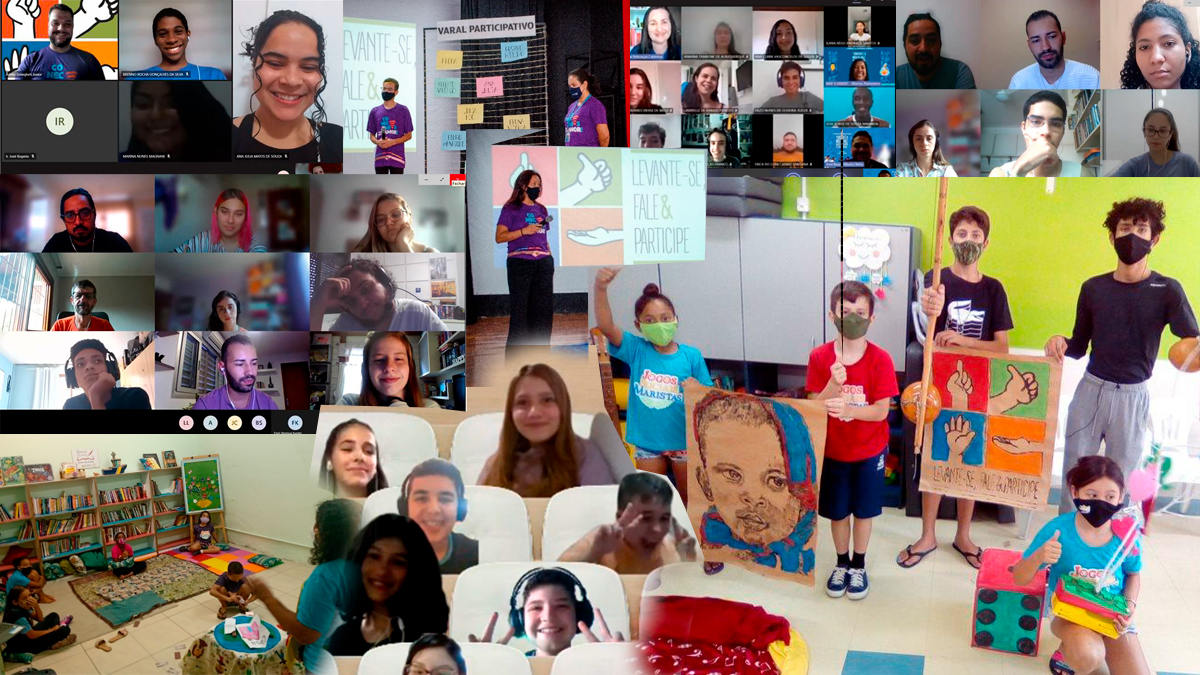
The Marists of Brazil present report on the “Stand Up, Speak Up & Act” Project
The Marists of Brazil presented a document that brings together the conclusions of the work process inherent in the “Stand Up, Speak Up & Act” Project, proposed by the Secretariat of Education and Evangelisation of the General Administration of the Institute. The document is the result of the careful analysis of the educators of the educational units and the Working Groups of the three Provinces and the Reference Group.
Given the pandemic situation, the schedule of the listening process in the provinces had some setbacks and only some units were involved in the project, respecting the limits and forms of organisation imposed by the legislation. Thirty-five educators from the schools and social units took part in these meetings, as well as members of the project’s working group in the provinces and the reference group at the level of Marist Brazil.
The specific objectives of this participation process were:
- To empower children, adolescents and young people to be advocates of the right to be heard.
- To include and enable children, adolescents, and young people to be protagonists in matters of institutional and public relevance. Encourage educators to reflect on the issue of listening and the participation of children, adolescents, and young people.
- To carry out qualified listening.
- To present a report to the Secretariat of Education and Evangelisation of the Marist Institute.
During the consultation, the educators underlined the need to deepen the theme of the right to participation of children and young people in the Marist mission spaces, it being fundamental to carry out training, reflections, and dialogues on the subject, both with adults and with the children, adolescents and young people themselves. For their part, the children, adolescents, and young people also offered suggestions for improving and strengthening the spaces for participation.
Some of the principles presented in the document were:
- Provide spaces for sharing and coexistence;
- Promote and defend children’s rights;
- Encourage child empowerment and participation;
- Recognise the child as a theological place.
Among the various methodologies used are: storytelling, conversation circles, drawings, paintings, writing activities, awareness with music, videos, film excerpts, poetry reading, interactive resources, such as the Mentimeter platform, meditation using the Mindfulness technique, among others.
